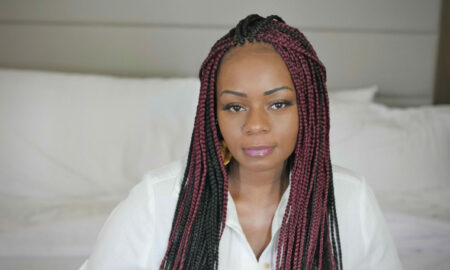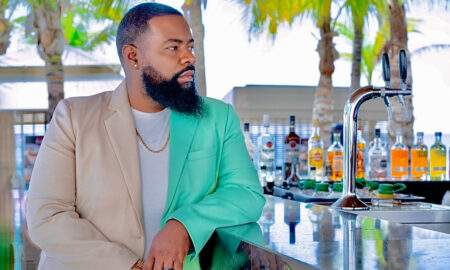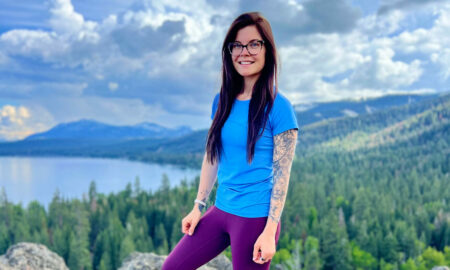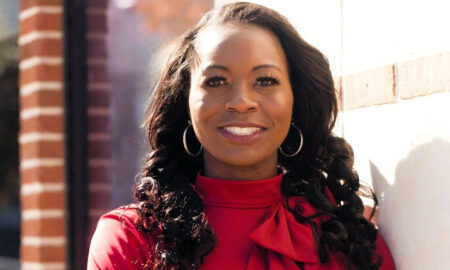

Today we’d like to introduce you to Terry Arnold.
Terry, let’s start with your story. We’d love to hear how you got started and how the journey has been so far.
After a long rainy summer filled with doctor visits, I was finally diagnosed with triple-negative inflammatory breast cancer (TN IBC) at the age of 49. I completed treatment in June 2008 and was grateful to have a new phase to my vocabulary. NED, ‘no evidence of disease’. Since there was no cancer history in my family tree, I was very shocked to have such an aggressive cancer at a relatively young age. After my diagnosis of IBC, I was even more dumbstruck at how little information was available regarding this type of breast cancer, and even outraged at the lack of research and education considering it was first written about in the 1800’s. I formed the IBC Network Foundation, to encourage education and fund research for this orphaned form of breast cancer. I am pleased that we have managed to put almost 1 million dollars to research in five years. Our impact is now global as we have a sister charity in the UK funding research as well.
Overall, has it been relatively smooth? If not, what were some of the struggles along the way?
It has not been an easy road. When I was first diagnosed, I was told to get “my affairs in order” That was hard. Especially after 4 months of misdiagnosis to go from “don’t worry, nothing is wrong” to “sorry… we missed and most likely you will not live long.” I started a brutal treatment plan and I was doing well. My story got out and women who have the same diagnosed were contacting me. Asking for information and help. The next thing I knew I was starting support groups worldwide, based in the US, Canada, UK, and Australia for women to talk and learn. My experience of being misdiagnosed did show me that this cancer is not well known by doctors but I also quickly saw that the “No Lump Still Cancer” story needed to be told. That is where it got hard. In the last twenty or so years, we have been educated to get your mammograms, that cancer doesn’t hurt, or show and early detection is important. None of that applies here. IBC can hurt, mammograms and even ultrasounds can miss it, it has a physical change to the breast and it can’t be detected until is physical presentation at stage 3. I was definitely swimming upstream at every single step. However, people starting listening, the group were growing, women were speaking up, echoing my message as well as sharing their stories. I founded a charity to fund research, as you can imagine, a disease this orphaned, research is not funded.
The IBC Network Foundation – what should we know? What do you guys do best? What sets you apart from the competition?
We are an all volunteer ran charity focused on funding research for inflammatory breast cancer. We are able to have about on average .89 of each dollar donated to go to research. We have funded two clinical trials, a huge accomplishment. We have funded research at MD Anderson, Dana Farber, University of Delaware and Vanderbilt. Hope lives but on delicate wings, as the life expected is still only 2 years for over 40% of those diagnosed and 5 years past diagnosed is viewed as life time goal. We hope to change the numbers by funding more research. What really sets us apart from other breast cancer charities is our main mission is to fund research AND a large percentage of our funds are applied to our mission. We now have a sister charity in the UK funding research and we are working to establish a charity in Canada that is also following our model.
What is “success” or “successful” for you?
Our personal success is marked in the hope we give patients, their families and the researchers as they all want to see this disease only talked about in history books, as a disease overcome and removed from a threat. One of the markers we look for is that due to our grassroots movement of women who have the disease becoming educated, that they are taking that information to their care team, and helping them be more well versed. Also in the medical community that is well versed, we are funding research and that “seed” funding or discovery science funding as it is called, is allowing researchers to go for more significant grant requests, with some science in hand to show why this matter. And it is working. Also, we have created so much content on IBC education we have developed an app that has more information on one place on IBC that any were else. Our app has been downloaded worldwide and is now recommended by major research hospitals for education. Another marker we use to measure our success is the fact that we have asked to help start sister charities in other counties.
Contact Info:
- Website: www.theibcnetwork.org
- Phone: 281-797-5578
- Email: Terry@theibcnetwork.org
- Instagram: https://www.instagram.com/talkibc/
- Facebook: https://www.facebook.com/talkibc/
- Twitter: @talkibc
- Other: https://www.youtube.com/channel/UCHpYKw__TkD_fBFry3UX-xg






Image Credit:
Chris Kulhman
CK Productions ( for The Silence Is Killing Me photo)
Getting in touch: VoyageHouston is built on recommendations from the community; it’s how we uncover hidden gems, so if you know someone who deserves recognition please let us know here.

















